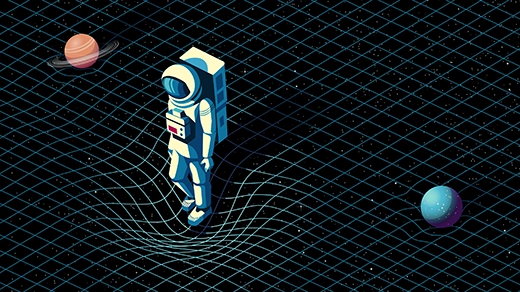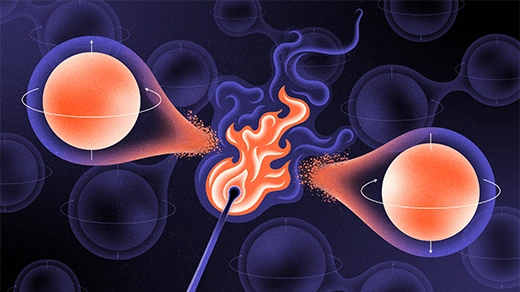What's up in
Physics
Latest Articles
Do We Need a New Theory of Gravity?
Since Newton had his initial revelation about gravity, our understanding of this fundamental concept has evolved in unexpected ways. In this week’s episode, theoretical physicist Claudia de Rham and co-host Janna Levin discuss the ways our current understanding of gravity needs to continue to evolve.
Computer Scientists Prove That Heat Destroys Quantum Entanglement
While devising a new quantum algorithm, four researchers accidentally established a hard limit on entanglement.
Diminishing Dark Energy May Evade the ‘Swampland’ of Impossible Universes
The largest-ever 3D map of the cosmos hints that the dark energy that’s fueling the universe’s expansion may be weakening. One community of theoretical physicists expected as much.
The Webb Telescope Further Deepens the Biggest Controversy in Cosmology
A long-awaited study of the cosmic expansion rate suggests that when it comes to the Hubble tension, cosmologists are still missing something.
Physicists Pinpoint the Quantum Origin of the Greenhouse Effect
Carbon dioxide’s powerful heat-trapping effect has been traced to a quirk of its quantum structure. The finding may explain climate change better than any computer model.
‘Metaphysical Experiments’ Probe Our Hidden Assumptions About Reality
Experiments that test physics and philosophy "as a single whole" may be our only route to surefire knowledge about the universe.
Vacuum of Space to Decay Sooner Than Expected (but Still Not Soon)
One of the quantum fields that fills the universe is special because its default value seems poised to eventually change, changing everything.
What Could Explain the Gallium Anomaly?
Physicists have ruled out a mundane explanation for the strange findings of an old Soviet experiment, leaving open the possibility that the results point to a new fundamental particle.
How America’s Fastest Swimmers Use Math to Win Gold
Number theorist Ken Ono is teaching Olympians to swim more efficiently.








